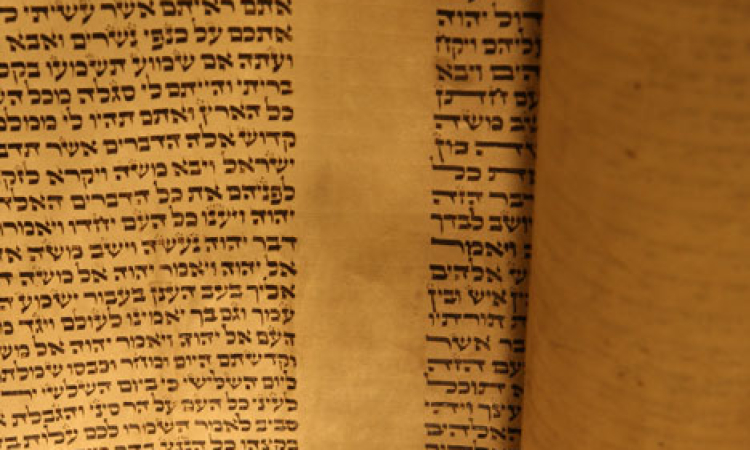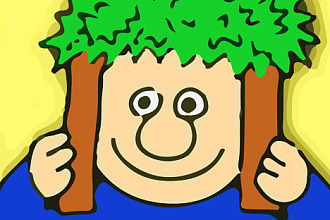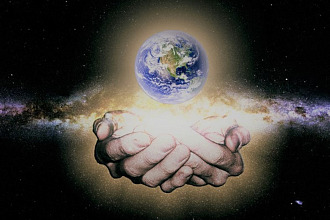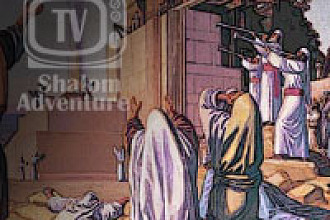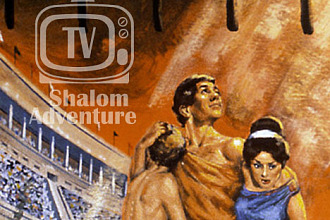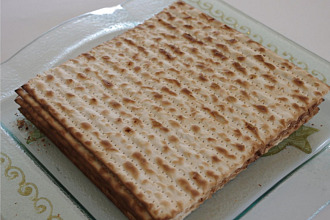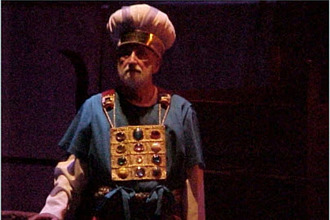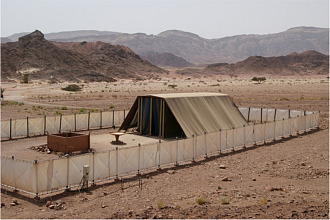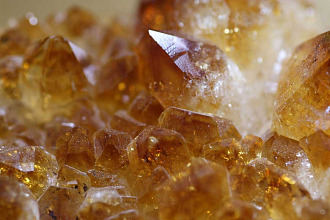Parasha for the Week: Ki Tisa: Exodus 30:11 - 33:45
Haftara: 1 Kings 18:1 - 39
Brit HaChadasha: John 13:1 - 17
Overview:
Moshe conducts a census by counting each silver half-shekel donated by all men over twenty.
Moshe is commanded to make a copper laver for the Mishkan. The women donate the metal.
The formula of the anointing oil is specified, and G-d instructs Moshe to use this oil only for dedicating the Mishkan, its vessels, Aharon and his sons.
G-d selects Bezalel and Oholiav as master craftsmen for the Mishkan and its vessels.
We are commanded to keep the Sabbath as an eternal sign that G-d made the world.
Moshe receives the two Tablets of Testimony on which are written the Ten Commandments.
The mixed multitude who left Egypt with the Jewish People panic when Moshe's descent seems delayed, and force Aharon to make a golden calf for them to worship. Aharon stalls, trying to de¬lay them. G-d tells Moshe to return to the people immediately, threatening to destroy everyone and build a new nation from Moshe. When Moshe sees the camp of idol-worship he smashes the tablets and destroys the golden calf. The sons of Levi volunteer to punish the transgressors, executing 3,000 men.
Moshe ascends the mountain to pray for forgive¬ness for the people, and G-d accepts his prayer.
Moshe sets up the Mishkan and G-d's cloud of glory returns.
G-d tells Moshe to hew new tablets.
Idol worship, intermarriage are prohibited. The laws of Pesach, the first-born, the first-fruits, Shabbat, Shavuot and Succot are taught.
When Moshe descends with the second set of tablets, his face is luminous as a result of contact with the Divine.
"G-d Saves"
One of the themes of this parasha is that "God's salvation comes in the blink of an eye" (Mi¬drash - Yalkut Shemoni, Netzavim #960). We see from this extreme example (the worship of the eigel hazahav (golden calf) that, no matter how far we have fallen or how impure we feel we have become, God is able to forgive. God can save people at a mo¬ment's notice. Thus, we have no reason ever to despair or be distraught, since salvation is right around the cor¬ner. That is the lesson of the cleansing water of the cop¬per basin described at the beginning of the parasha. The torah states: Then the LORD said to Moses, "Make a bronze basin, with its bronze stand, for wash¬ing. Place it between the Tent of Meeting and the altar, and put water in it. Aaron and his sons are to wash their hands and feet with water from it. (Ex. 30:17-19.) The Slonimer Rebbe compares water to teshuva, based on the verse, "I will sprinkle upon them purifying waters" (Ezekiel 36:25). Water is often associated with purity, and the ability to be cleansed from past mistakes. That is why Yeshua recommended the mikve (immersion) to everyone who accept him as the Messiah.
"Love for G-d's People"
The Torah states, "Now, if you would, please for¬give their sin. If not, You can blot me out from the book that you have written." (Exodus 32:32) After the sin of the Golden Calf, when the Jewish people was in danger of being destroyed, Moses begged G-d to forgive the people's sins and if not, to blot his name out of the Torah. Moses has shown a great love for G-d and his people. Let's remember in all these events which occur in the desert, Israel was in the middle of a cosmic conflict, the Great Controversy between the Messiah and Satan. Our Love for G-d is demonstrated when we are able to love his people in any circumstance. Indeed, in this way we recognize that G-d is Love and compassionate for His people, "The enemy of G-d's people upon the earth had not, however, taken fully into account the compassionate nature of Him who 'will by no means clear the guilty,' yet whose glory it is to be 'merciful and gracious, long-suffering, and abundant in goodness and truth, keeping mercy for thousands, forgiving in¬iquity and transgression and sin.' (Exodus 34:6, 7.) De¬spite the efforts of Satan to thwart G-d's purpose for Israel, nevertheless even in some of the darkest hours of their history, when it seemed as if the forces of evil were about to gain the victory, the Lord graciously revealed Himself." (PK296.)
"Givng? Studying?"
Rabbi Yitschak Elchanan Spector, Rabbi of Kovno, was once collecting charity to provide food and wood for heating for the poor. He came to the home of one of the wealthy people in his community, who was also a Torah scholar. Rabbi Yitzchak Elchanan told him the reason for his coming and asked for his contribution. The wealthy man gave a small donation.
When the rabbi remarked how small the sum was compared to what he could afford to give, the wealthy man replied, "As you know I spent much of my time studying Torah. My Torah study is my contribution to our community.
Let other wealthy people, who don't study Torah, help fulfill this community mitzvah."
Rabbi Yitschak Elchanan, showing his disappointment, replied, "Your answer reminds me of the following story; During the Russian- Japanese war, every Russian citizen was called to contribute a minimum of ten rubles to the war chest. Officers of the Czar came to collect money from the citizens of one of the villages. Everyone gathered in the town hall and the officers told them how important it was to take part and contribute a minimum of ten rubles.
One after the other the peasants announced their contributions of ten rubles. One poor peasant, however, got up and announced that he is giving 100 rubles!
Everyone was shocked. "How can you manage to give such a large sum?" they asked.
The peasant explained, "A while ago I was brought before the judge and fined ten rubles. When I told the judge that I didn't have the money, he sentenced me to a month in jail. Now, I figured if a month in jail is worth 10 rubles, then 10 months in jail should be worth 100 rubles! I'm ready to sit 10 months in jail. This will be my 100 rubles contribution to the Russian army!"
"The same is with you", concluded Rabbi Yitzchak Elchanan. "Your studying Torah will help feed or keep warm the poor of our city like that peasant's sitting in jail will help the Russian army! "This is also the lesson from our Parsha," continued the rabbi. "When it came to count the Jewish people G-d told them to give a half-Shekel.
Studying Torah is very important, but it will not make one needy person less hungry or warmer in the winter. One cannot excuse himself from giving charity by opening the Talmud. One must "open" their pockets and give!"
Haftara: 1 Kings 18:1 - 39
Parasha: Israel experienced a great apostasy in the time of Moses. "He took what they handed him and made it into an idol cast in the shape of a calf, fashioning it with a tool. Then they said, "These are your gods, O Israel, who brought you up out of Egypt." Ex. 32:4
Haftara: Israel Experienced a great apostasy In the time of the prophet Elijah: 'So they took the bull given them and prepared it. Then they called on the name of Baal from morning till noon. "O Baal, answer us!" they shouted. But there was no response; no one answered. And they danced around the altar they had made. " (1Kings 18:26) The people of Israel were under the domination of Jezebel, an evil queen and Ahab, a weak king. Jezebel killed many prophets of God while some of them are protected by Obadiah the governor. Elijah decides to challenge the king Ahab: Elijah said, "As the LORD Almighty lives, whom I serve, I will surely present myself to Ahab today." (1Kings 18:15). What is strange in this story is that the one who is faithful, Elijah, is accused by the king to make trouble in Israel: "When he saw Elijah, he said to him, "Is that you, you troubler of Israel?" (1Kings 18:17) Ahab is the one who brought idolatry to Israel, but he is so blind that he does not see anymore where is the problem. Elijah does not hesitate to say the truth to the king "But you and your father's family have. You have abandoned the LORD's commands and have followed the Baals." (1Kings 18:17) Elijah is a courageous man, even if later he will be afraid to be killed by Jezebel, it is this sort of man and woman the world needs.
Brit HaChadasha: Ephesians 6:11 - 17
Our parasha describes the "bronze basin". "Make a bronze basin, with its bronze stand, for washing. (Ex 30:18). This bronze basin was used for the purification of the cohenim. "Aaron and his sons are to wash their hands and feet with water from it." in the bible the water served as a tool of purification "I will sprinkle upon them purifying waters" (Ezekiel 36:25). The cohenim washed their hands and feet before starting their ministry in the tabernacle. In our text of the brit Hachadasha Yeshua used also a basin of water to wash the feet of his talmidim. This act of humility was performed just at the beginning of his last seder. The day after, Yeshua would give his life for Israel and for the world. But just before dying he wanted to purify his talmidim for their ministry. In fact Yeshua is the "high priest" according to Melkizedek as we have already seen (Ps 110). He made his talmidim a kingdom of priests (Rev 1:5) We could consider that their ministry started as soon as Yeshua died. Exactly as the cohenim were first ordained by a complete washing they just needed to wash their hands and their feet in the basin when they performed subsequently their ministry. The talmidim of Yeshua were completely washed (by the immersion) and they just needed to wash their hands and their feet in the basin in order to be completely purified and cleansed from any sin. That is why in this text when Peter did not understand what Yeshua was doing he said: "A person who has had a bath needs only to wash his feet; his whole body is clean." (John 13:10). This act of washing the feet is so important that when Peter refused this act of humility from his master and Mashiach, Yeshua said to him "Unless I wash you, you have no part with me." (John 13:8). Then he invited his talmidim (and with them everyone who would become his talmid in the following years) to renew this act of humility and purification "Now that you know these things, you will be blessed if you do them." John 13:17. We are blessed if we do what Yeshua has taught us.
Richard-Amram Elofer

